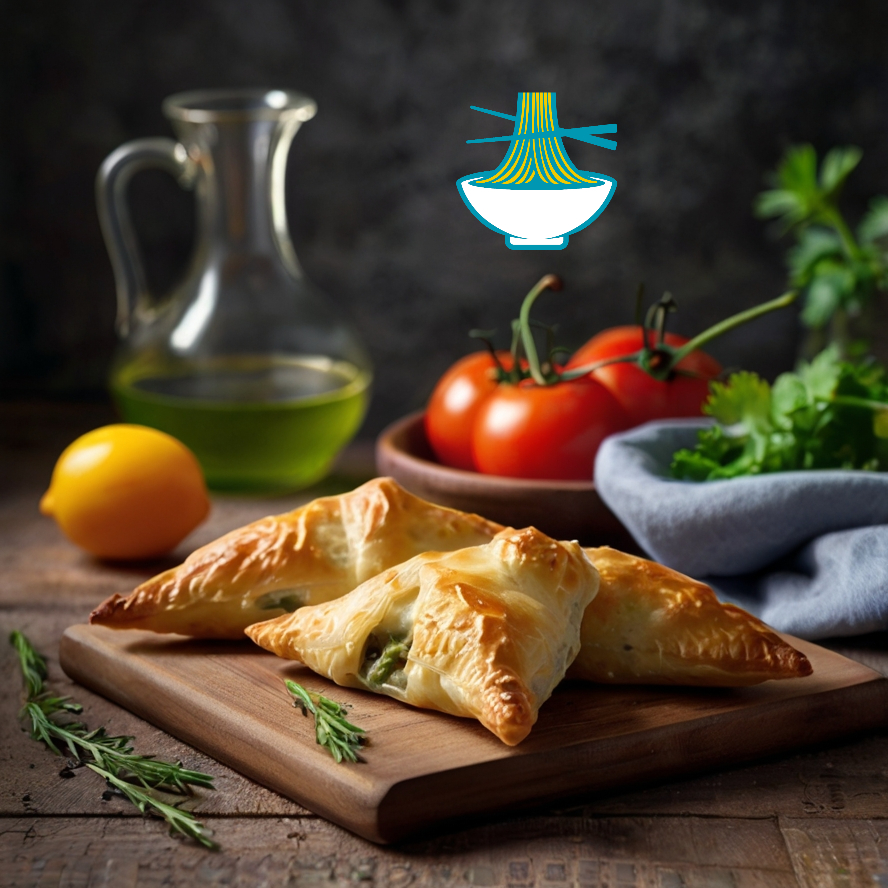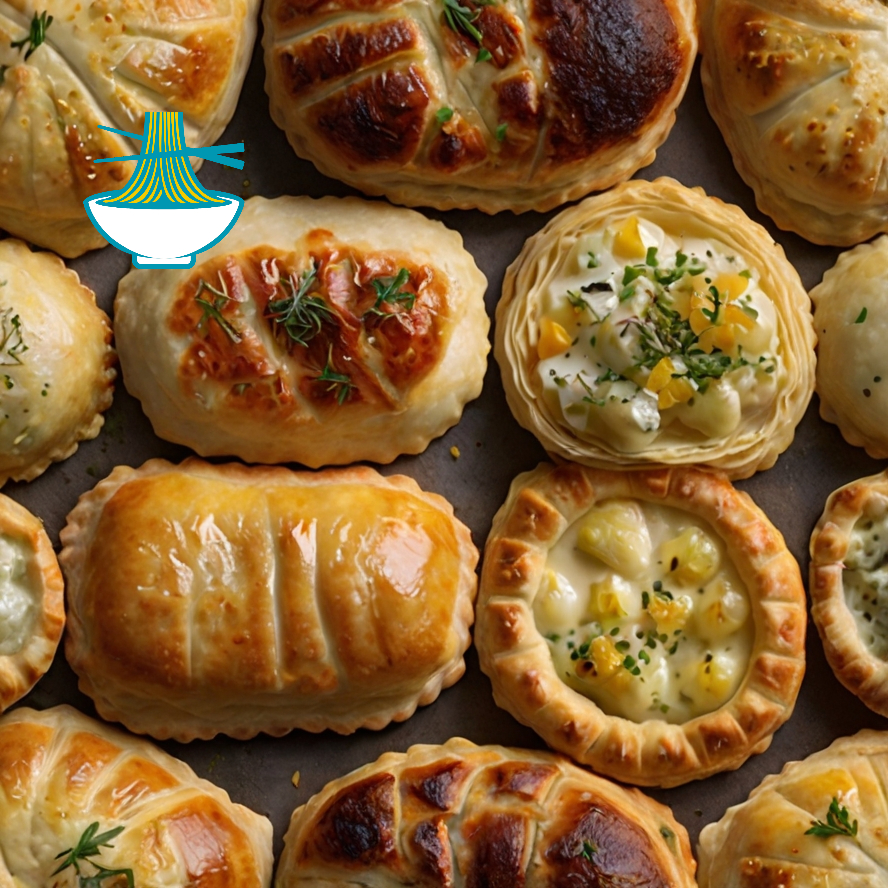Börek, a beloved Turkish pastry, features thin layers of dough filled with cheese, meat, or vegetables, then baked or fried. Its origins trace back centuries, showcasing a rich culinary tradition influenced by various cultures along the Silk Road.
Ingredients:
- Yufka dough (thin phyllo pastry sheets)
- Filling options: cheese, minced meat, or vegetables (such as spinach)
- Olive oil or melted butter for brushing
Method:
1. Preheat the oven to 180°C (350°F).
2. Prepare the filling by mixing your choice of cheese, minced meat, or sautéed vegetables.
3. Lay a sheet of yufka dough on a clean surface.
4. Place a generous amount of filling along one edge of the dough.
5. Roll the dough over the filling tightly to form a log or coil shape.
6. Repeat with remaining dough and filling.
7. Place the rolled böreks on a baking sheet lined with parchment paper.
8. Brush the tops of the böreks with olive oil or melted butter.
9. Bake in the preheated oven for about 25-30 minutes, or until golden brown and crispy.
10. Serve warm and enjoy!
Nutrition Value:
1. Yufka dough (thin phyllo pastry sheets):
- Calories: Approximately 160 calories per 50g serving
- Carbohydrates: Around 33g per 50g serving
- Protein: About 5g per 50g serving
- Fat: Approximately 0.5g per 50g serving
- Sodium: Varies depending on brand, typically low
- Cholesterol: Generally contains no cholesterol
- Nutritional benefits: Yufka dough provides energy from carbohydrates, some protein, and minimal fat. It's low in cholesterol and can be a versatile base for various recipes.
2. Filling options:
- Cheese:
- Calories: Varies depending on type, approximately 100-120 calories per 28g serving
- Carbohydrates: Varies, usually minimal
- Protein: Around 6-7g per 28g serving
- Fat: Approximately 8-10g per 28g serving
- Sodium: Varies depending on type, usually moderate
- Cholesterol: Typically contains cholesterol, amount varies
- Nutritional benefits: Cheese provides protein, calcium, and phosphorus. It also contains vitamins A and B12.
- Minced meat (beef):
- Calories: Approximately 215 calories per 85g serving (cooked)
- Carbohydrates: None
- Protein: Around 22g per 85g serving
- Fat: Approximately 14g per 85g serving
- Sodium: Varies depending on seasoning, usually moderate
- Cholesterol: Around 75mg per 85g serving
- Nutritional benefits: Minced meat is rich in protein, iron, zinc, and B vitamins.
- Vegetables (such as spinach):
- Calories: Approximately 7 calories per 30g serving (cooked)
- Carbohydrates: Around 1g per 30g serving
- Protein: Approximately 1g per 30g serving
- Fat: Minimal, usually less than 0.1g per 30g serving
- Sodium: Around 24mg per 30g serving
- Cholesterol: None
- Nutritional benefits: Spinach is low in calories and contains vitamins A, C, and K, as well as folate, iron, and magnesium.
3. Olive oil or melted butter for brushing:
- Calories: Approximately 120 calories per tablespoon of olive oil, or 100 calories per tablespoon of melted butter
- Carbohydrates: None
- Protein: None
- Fat: Around 14g per tablespoon of olive oil, or 11g per tablespoon of melted butter
- Sodium: None
- Cholesterol: Around 0mg for olive oil, or 31mg for melted butter per tablespoon
- Nutritional benefits: Olive oil is rich in monounsaturated fats and antioxidants, while butter provides saturated fats and some fat-soluble vitamins like A, D, and E.


Comments